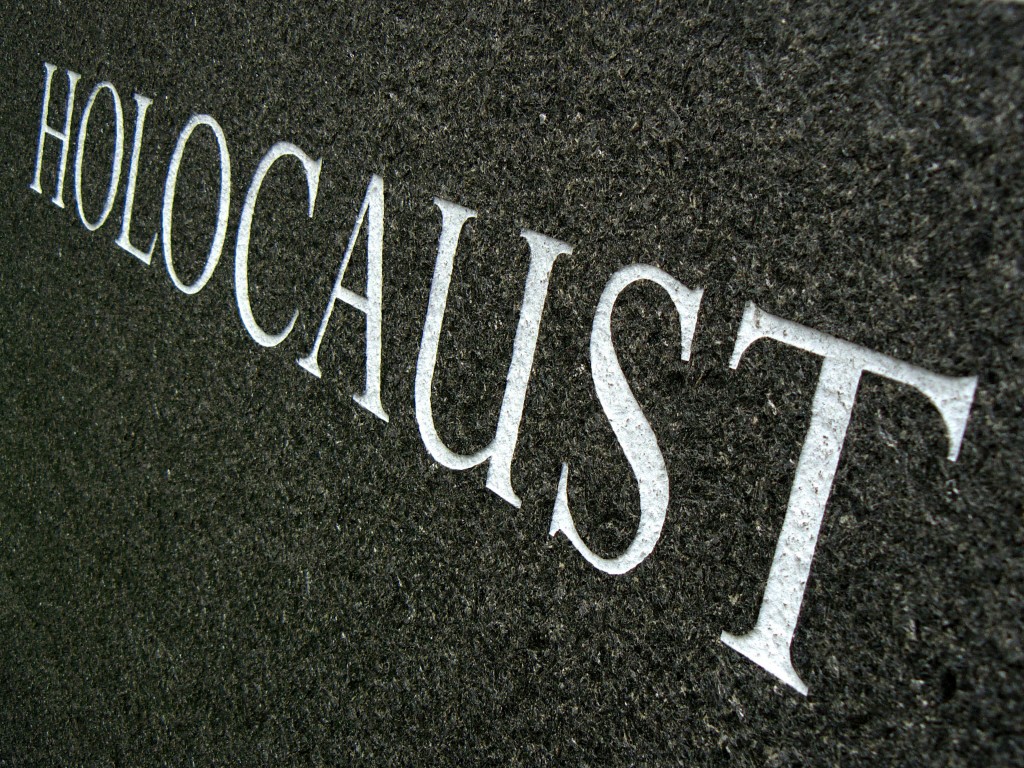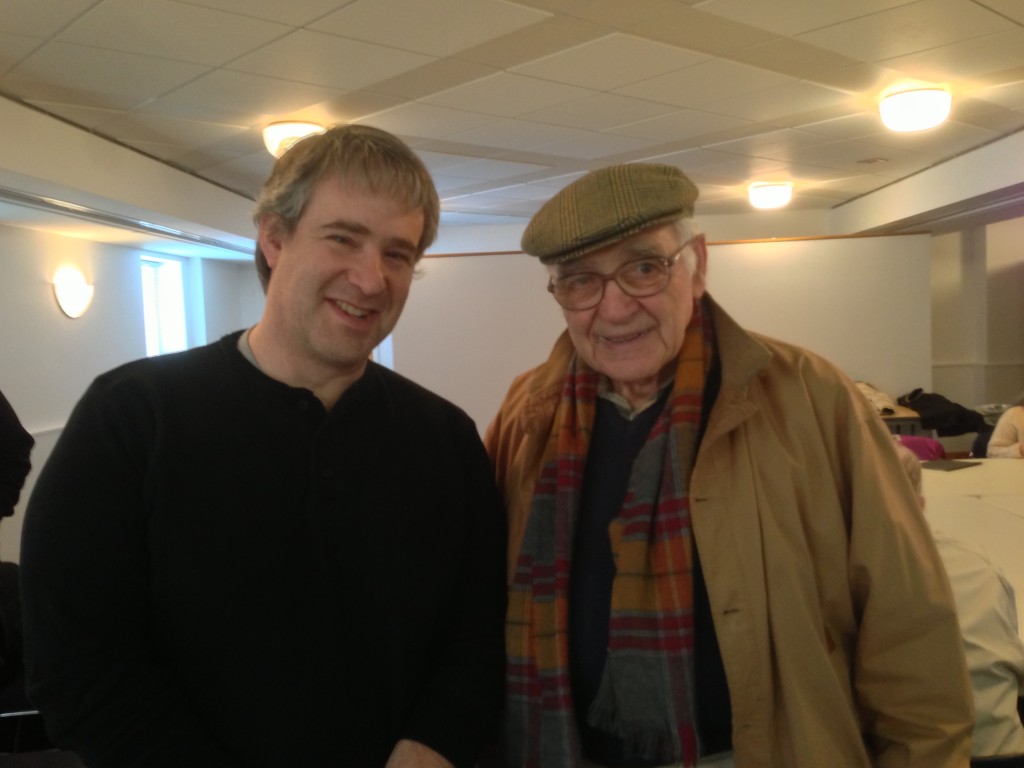
“We Could Recall / We Could Tell Stories”: the Holocaust as personal history
Photo of the New England Holocaust Memorial in Boston. Photo by Flickr user yeowatzup, reproduced here under Creative Commons license
The Holocaust looms large in popular literature, film and theater. Nearly 70 years after the end of World War II, the subject is a fully realized genre whose narrative contours are, at this point, widely familiar, thanks to writers like Anne Frank, Primo Levi, Art Spiegelman and Elie Wiesel, not to mention films like Schindler’s List and The Sorrow and the Pity. I suspect most of us by now think we know what “a Holocaust story” sounds like. Add to that the sheer magnitude of the atrocities, the millions of lives snuffed out – the scale is simply overwhelming. It’s difficult to square the suffering of Jewish families in Europe with the comfortably banal textures of contemporary daily life. And so, it’s tempting to relegate the horrors of their wartime experiences somewhere apart from the rest of us, to buffer them – even less than a century on – with the faraway tinge of myth.
“We Could Recall / We Could Tell Stories” defies such distance. Written by Sharon DeMark, the one-act play weaves together vignettes derived from oral histories given by eight congregants of Mount Zion Temple in St. Paul, all survivors of World War II. The production was directed by Leah Cooper, a stalwart in the theater community and founder of Footprints Collective, where she has also worked with veterans to bring their stories to life through performance.
Enacted by a mix of amateur and professional actors aged 14 to 85, each survivor’s story is emphatically individual, rich in odd, mundane and revealing details: one laughs to remember his father reading the Seder passages quickly, impatient to get down to the business of eating; another recalls his own grandfather milking those same texts so that holiday meals sprawled for hours. One woman remembers being the only girl in a class of 16 boys, avoiding the Home Economics classes favored by her friends because she was determined to become a doctor someday. One of the men recounts his delighted surprise to discover that his otherwise mild-mannered paternal relatives were, in fact, cattle thieves in Germany before the war.
The program notes indicate these eight interwoven stories are “just a snapshot, a slice” of eight very different lives from families far-flung through Europe before the war – Hungary, Greece, Germany, Poland, Romania and Czechoslovakia. The survivors represented in this play come from diverse backgrounds as well: rich and poor, urban and rural, observant and secular, large families and small. “What they have in common is that they survived Hitler’s regime and eventually found themselves living in Minnesota.”
Actor Joe Wiener and Erwin Farkas, whose oral history is one of those included in “We Could Recall / We Could Tell Stories.” Photo courtesy of Sharon DeMark
The stories told here aren’t recitations. The flow is less concerned with getting from A to B, and more conversational: questions and answers are offered between cast members and the narrative is allowed to meander according to the vagaries of personal memory. Interstitial moments are threaded with plaintive violin melodies and a sad lullaby many in the crowd come to recognize well enough to hum along.
The given oral histories aren’t dominated by concentration camp stories. There are accounts of those at the periphery of the horrors as well: stories about hiding in the mountains and the discomforts of city folk ill-prepared to make do in the forest. Some recall hiding in neighbors’ homes or being sent abroad as children when the tide started to turn ugly. Others remember watching family members taken by the Gestapo, and the persistent anxiety of wondering, Who’s next? The disbelief and outrage at abrupt displacement, in story after story, is palpable and personal. One survivor remembers leaving his Hungarian village convinced his family would soon be returning: “We didn’t know we were leaving for good. We just thought we’d be getting out of the way for a few weeks,” until more reasonable forces prevailed and could set the place to rights again.
This isn’t performance as entertainment. It’s also not performance as atonement or activism. Rather “We Could Recall / We Could Tell Stories” springs from an impulse as timeless and intimate as the desire to share a fire with family and friends. Told now, in that Mount Zion fellowship hall, the play serves as a communal declaration of identity and shared experience, a promise to carry faith and cultural memory from one generation to the next. One young woman in the audience, after the show, says, “What I find so moving is just how typical these people are – there’s nothing special about them besides the atrocities they’ve lived through. That’s what I want my own children to know: What happened to them could happen to anyone. They’re us.”
“We Could Recall / We Could Tell Stories” by Sharon DeMark, directed by Leah Cooper, was staged at Mount Zion Temple in St. Paul last week, April 24, 27 and 28. Additional community performances are scheduled for Central High School (275 Lexington Parkway N, St. Paul) on April 29; Sholom West (3620 Phillips Parkway, St. Louis Park) on May 1, Saint Paul City Hall (15 Kellogg Boulevard West, St. Paul) on May 3, and Sholom East (740 Kay Avenue, St. Paul) on May 5.
Recent Content
-
Artsarticle ·
-
Artsarticle ·
-
Artsarticle ·


